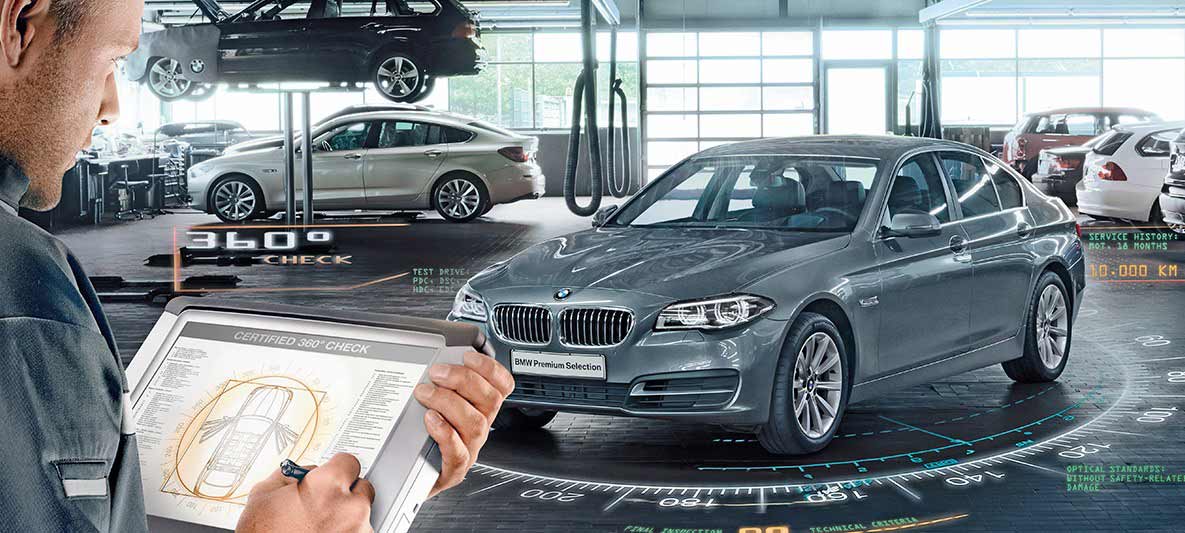Auto
The Ultimate Guide to Car Leasing: What You Need to Know Before You Sign?
Car rental can be a great choice for new wheels, but without long-term responsibilities. But it can be challenging to follow if you’re unfamiliar with how Personal Car Leasing works. Ensure you have all the necessary knowledge before signing the lease agreement.
Understanding Car Leasing
In effect, car hire is just a very long payment agreement. Instead of paying the full value of a car, as you would when you buy it, you are only responsible for the amount that the model denigrates during your lease term.
Key terms to know
- Residual Value: The assessed value of the car at the end of the lease. Higher residual values usually translate to lower monthly payments.
- Capitalized Cost (Cap Cost): The car’s price plus any other fees or charges. This is basically how much you are borrowing.
- Money Factor: Like the interest rate on a loan, it regulates how much you will wage in finance charges over the term of your lease. If the MF is lower, you will have to pay less.
What to Look for in a Lease Agreement?

- Mileage Limits: If you exceed this limit, you may face harsh penalties. So, pick a lease carefully to match your driving behavior.
- Wear and tear: The car must be in marketable condition (so you’re on the hook for upkeep). Learn the difference between over-all wear and tear and what might cost you more once you return your vehicle.
- Penalty for Early Termination: If you dismiss your lease rashly, the consequences are likely to be high. Here are some of the costs you may need to cover. It is important for you to know all this before signing on.
Advantages of Leasing
- Lower Monthly Payments: Because you are only disbursing for the devaluation, your monthly payments will typically be lesser than when you buy.
- Drive a new car every few years: Leasing allows you to continue driving a new car with the latest features every few years.
- Lower Repair Costs: A manufacturer’s warranty typically covers the majority of lease terms, which can lower repair costs.
If you like waiting in a different car every year and want to have inferior monthly payments, then probably hire is the way for you. But don’t forget to read the terms and conditions of signing a lease. Understanding the waffle and let parameters of Personal Car Leasing will help you make an informed decision that aligns with your wants, needs, and budget.
The Ultimate Guide to Buying Used Cars in Fort Myers
Introduction
Welcome to the ultimate guide for purchasing used cars in Fort Myers! This comprehensive resource is designed to provide you with all the information you need to make an informed and confident decision when buying a pre-owned vehicle. From researching and inspecting cars to negotiating deals and completing paperwork, we’ve got you covered.Try this site today!
Chapter 1: Researching Your Options
Determine Your Budget
Before you start searching for a used car, establish a realistic budget. Consider not just the purchase price but also ongoing costs like insurance, taxes, and maintenance.
Identify Your Needs
Think about your specific requirements: Do you need a compact car for city driving or an SUV for family trips? Knowing your needs will narrow down your options.
Research Reliable Brands and Models
Look into reputable car brands and models known for their reliability. Check online reviews, owner feedback, and reliability ratings to make an informed choice.
Chapter 2: Finding Used Cars
Dealerships
Visit local dealerships to explore their used car inventory. Dealers often provide certified pre-owned options with warranties, giving you peace of mind.
Private Sellers
Buying from a private seller can sometimes offer better deals. Look on classified websites, community boards, and local newspapers for listings.

Online Marketplaces
Numerous online platforms list used cars for sale. Websites like Craigslist, Autotrader, and Facebook Marketplace can connect you with both dealers and private sellers.
Chapter 3: Vehicle History and Inspection
Obtain Vehicle History Reports
Request a vehicle history report using the car’s VIN. These reports provide crucial information about the car’s past, including accidents, title issues, and maintenance records.
Schedule a Pre-Purchase Inspection
Arrange a professional inspection to evaluate the car’s mechanical condition. A trained mechanic can identify potential issues that might not be evident during a test drive.
Check for Signs of Accidents or Damage
Thoroughly inspect the car’s exterior and interior for signs of accidents or hidden damage. Mismatched paint, uneven gaps, and unusual odors can be red flags.
Chapter 4: Contacting Sellers and Viewing Cars
Communicate with Sellers
Contact sellers to gather more information about the car. Ask about its condition, maintenance history, reason for selling, and any known issues.
Schedule Test Drives
Test drives are crucial for assessing the car’s performance. Pay attention to how it handles, accelerates, brakes, and any unusual noises.
Ask Questions About the Car’s History
During the viewing, ask about the car’s history, including maintenance and repairs. A well-maintained vehicle is more likely to be reliable.
Chapter 5: Evaluating and Comparing Cars
Take Notes During Test Drives
Bring a notebook to jot down your impressions after each test drive. This will help you remember the details when comparing different cars.
Compare Pricing and Features
Evaluate the pricing of similar models and trim levels. Consider the features and mileage to determine if a price is reasonable.
Consider Ownership Costs
Factor in insurance premiums, maintenance costs, fuel economy, and potential repairs when assessing the overall cost of ownership.
Chapter 6: Negotiating and Making an Offer
Research Fair Market Value
Use online tools to estimate the fair market value of the car based on its make, model, year, condition, and mileage.
Start with a Reasonable Offer
Begin negotiations with a fair and reasonable offer. Avoid lowballing, as it may alienate the seller and hinder the negotiation process.
Be Prepared to Negotiate
Negotiation is common when buying used cars. Be willing to compromise while still advocating for a fair deal based on your research.
Chapter 7: Completing the Purchase
Review and Sign the Bill of Sale
A bill of sale outlines the terms of the purchase. Review it carefully before signing, ensuring all agreed-upon terms are accurately reflected.
Ensure Title Transfer and Registration
Complete the necessary paperwork for transferring the title to your name. Follow your state’s guidelines for registration and taxes.
Make Payment Safely
Use secure payment methods like cashier’s checks or online payment platforms when completing the transaction. Avoid cash transactions for safety reasons.
Chapter 8: Finalizing the Paperwork
Obtain a Vehicle History Report
After the purchase, keep a copy of the vehicle history report for your records. It can be useful for future reference.
Complete the Title Transfer
Finalize the title transfer with your local DMV or relevant agency to officially become the vehicle’s new owner.
Update Insurance and Registration
Update your insurance policy with the new vehicle details and complete the registration process to legally operate the car on the road.
Conclusion
Congratulations! You’ve now navigated the process of used car dealer in Fort Myers. By following this comprehensive guide, you’ve equipped yourself with the knowledge and steps needed to make a smart and informed purchase decision. Remember, patience and thorough research are your allies throughout this journey. Happy car hunting!
What Are the Advantages of Purchasing Used Cars for Sale?
Car ownership can be expensive. But buying used cars for sale in fresno may offer a way out by saving money without compromising quality. Indeed, there are multiple advantages associated with purchasing pre-owned vehicles which should not be overlooked; we will explore these in this article, such as affordability, depreciation, and reliability.
Affordability
One of the key advantages of purchasing a used car is its cost-cutting potential: It tends to be much more affordable than buying a new one, making them accessible to a broader range of buyers and offering potential savings over time. Furthermore, insurance premiums tend to be significantly less than for new cars, offering additional savings over time. Read more here https://www.ownacarfresno.com/.
Depreciation
New cars can quickly lose value over time. Some may shed up to 20% within just the first year! As such, purchasing and selling a new car can cost significant sums of money over time. Used cars offer much better protection as depreciation has already taken place and won’t cause as much of a financial drain over time.
Reliability
Another advantage to buying used is reliability. Many used cars remain in excellent condition thanks to being carefully maintained by previous owners; indeed, some used cars may even prove more reliable than newer vehicles since any initial manufacturing defects have already been addressed by them.

Lower Registration Fees
One advantage of purchasing a used car is the lower registration fees that you’ll need to pay. Most states base registration fees on vehicle values; thus, if you purchase used, your registration fees could be significantly less compared to new. This can be especially helpful if you are on a tight budget or trying to save money.
Used Cars Offer More Options
When searching for a new car, your choices are typically limited to models from that year alone. But with used cars, your selections become far greater – from different makes and models and cars offering features no longer offered on newer models.
Conclusion
Used car ownership offers numerous advantages, including affordability, depreciation, reliability, lower registration fees, and more options to choose from. Although buying used may present some potential drawbacks, such as higher maintenance costs and limited selection, the benefits far outweigh any disadvantages. So if you are shopping for an affordable yet quality vehicle in the market, a used vehicle could be the perfect way for you.



